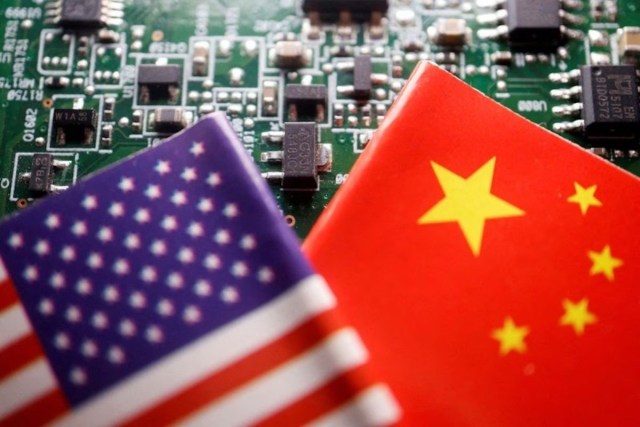US Chip Industry wants Biden to refrain from Further Restrictions on China

The Tech War has just got more intensified. It started in 2019. by Trump’s administration imposing sanctions on Huawei and ZTE. Since then, many other Chinese companies have been added to the „Entity list“. They have been labeled as a „national threat“ with allegations of espionage, but without any presented evidence. It’s worth noting that the term Tech War represents just a part of the broader US-China trade dispute. The US was in a large trade deficit, and the Trump administration started to impose tariffs, quotas, and sanctions. The US chip industry hasn’t been affected in 2019, but since then, many things have changed.
Meanwhile, many industrials and analysts have been warning that China would eventually strike back. Now we can witness it happening. The US Semiconductor Industry Association trade group has just called on President Biden to “refrain from further restrictions” on chip sales to China, Reuters reports.
US chip industry is worried about further tech war escalation
This initiative comes from a group of manufacturers and traders, led by Intel and Qualcomm, i.e. the biggest names in the American chip industry. The association planned to visit Washington this week, in order to try to discuss their views on China policy and further actions towards Chinese companies.
The statement signed by the members of the association also calls on Biden’s administration to once again consider the planned introduction of new restrictions and sanctions planned for October this year.
The US chip industry association also said that further rule-tightening by US officials risks “disrupting supply chains, causing significant market uncertainty, and prompting continued escalatory retaliation by China“. Eventually, they added that they want “the administration to refrain from further restrictions until it engages more extensively with industry and experts to assess the impact of current and potential restrictions to determine whether they are narrow and clearly defined, consistently applied, and fully coordinated with allies.”
This initiative by US manufacturers came just after China announced a restriction on germanium and gallium exports to the US and the EU, in response to years of US sanctions against Chinese companies.
China currently controls more than 80% of the world’s production of raw materials needed to supply these minerals, which are important for the operations of US chip companies. The export ban introduced by China as a form of retaliation obviously has a negative impact on the business of the US manufacturers and threatens further escalation. As a result, the mentioned association found itself in a position to defend its interests.
Why will China export ban have an impact on US companies after all?
To understand the impact of the Chinese move, let’s summarize some facts. The China export ban regulation restricts exports of 38 raw materials (metals and minerals) including gallium nitride (GaN) and germanium dioxide (GeO2). These two are used in the chip industry and are crucial for chip production, telecom, and defense industry. The US import of gallium is valued at $225M in 2022, according to US data.
These raw materials can be found in other regions too, but their production and refinement cannot be done in a short period of time. The entire process of mining, refining, and organizing the supply chain could take years. Even if the West somehow manages to do it quickly, there remains the factor of price. Such raw materials would be much more expensive. Such a situation would probably additionally disrupt supply chains, and lead to pricier final products as well.
In 2019 the US administration began to introduce tariffs, quotas, and sanctions against Chinese companies. Four years later, China retaliated by banning the import of Micron chips. But it seems that the decisive event for the latest move was the recent decision of the Dutch government to limit the delivery of ASML’s lithographic machines, which was apparently made under political pressure from Washington.
The US initially justified the introduction of sanctions on Chinese companies with concerns for national security. Now they don’t even hide that it’s an attempt to limit the progress of the Chinese industry of advanced technological components, primarily chips.
To what extent the Chinese export ban will have an impact on the US chip industry, and will the mentioned association achieves its goal, remains to be seen.

